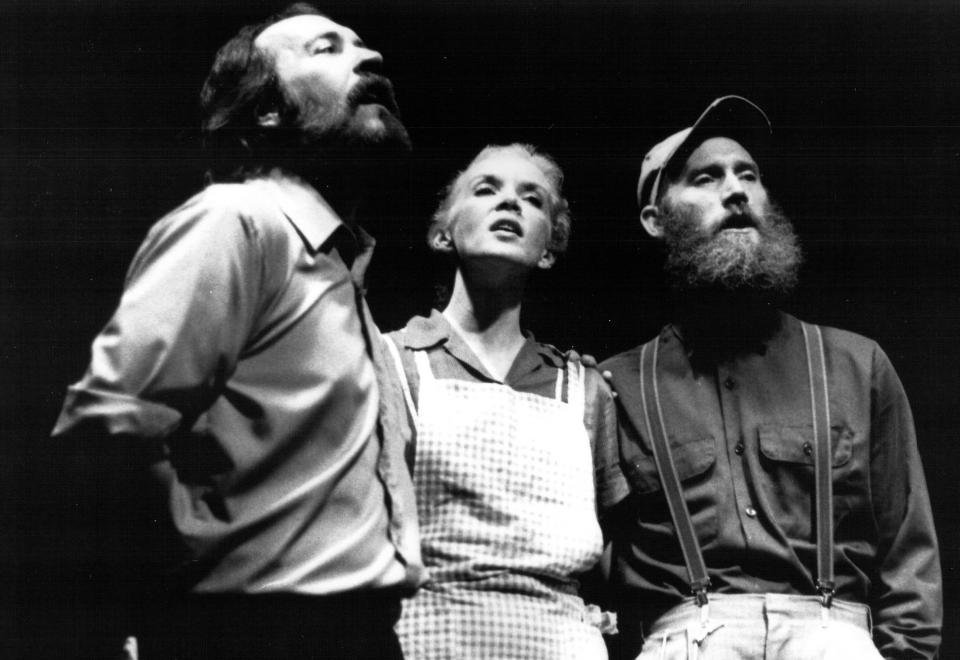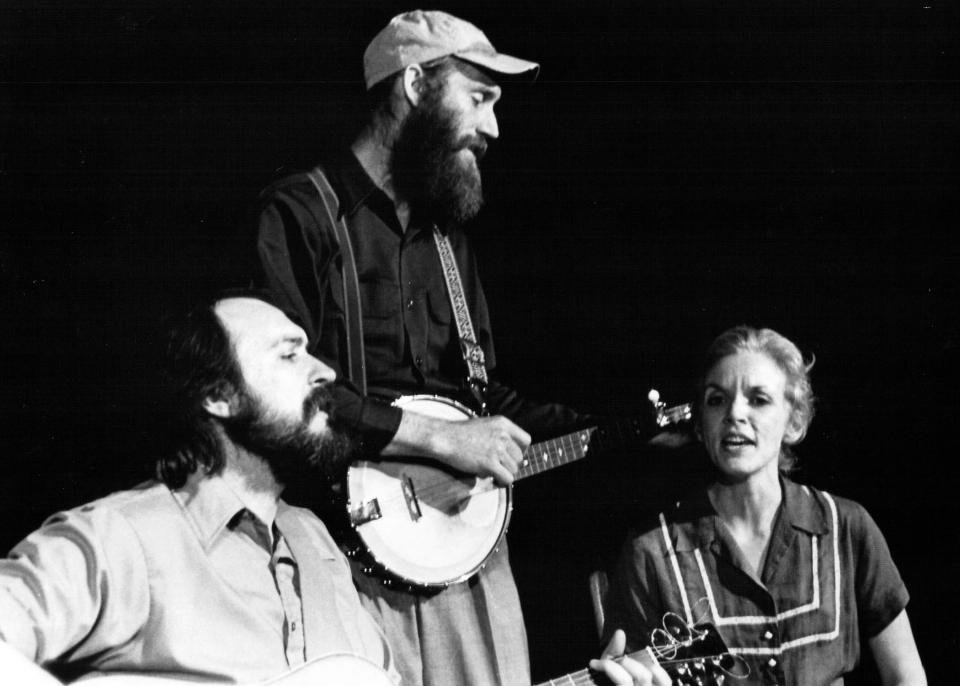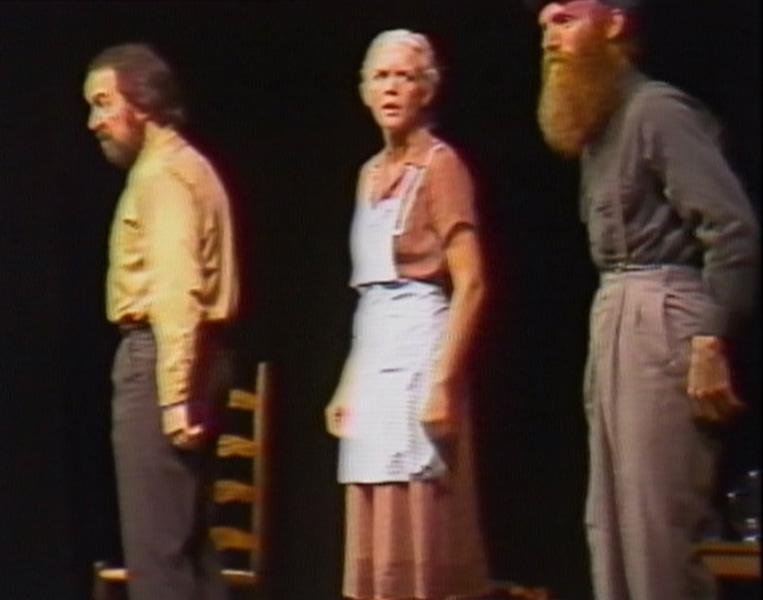
South of the Mountain
1982 - Roadside Theater
South of the Mountain traces the lives of two generations of an Appalachian family living on a small farm as agrarian life gives way to coal mining and industrialization.
Commentary
-
“South of the Mountain is an extraordinary theater piece by the Roadside Theater, sung and narrated with serenely beautiful simplicity.
New York Post
-
"The music ranges from foot-stomping mountain tunes to plaintive ballads, and are sung superbly by the three talented performers. Indeed, the music alone is worth the price of a ticket."
San Francisco Chronicle
South of the Mountain tells the story of two generations of an Appalachian family as industrialization moves into the mountains and hillside farming yields to coalmining. There are a dozen original compositions ranging from rousing songs accompanied by guitar, fiddle, and banjo to plaintiff ballads sung in a cappella harmonies.
South of the Mountain is the second play in Roadside's Pine Mountain Trilogy, which also includes Pretty Polly and Leaving Egypt. The Trilogy takes its name from the setting of the three plays, the 110 mile-long Pine Mountain that divides east Kentucky from southwest Virginia. This once isolated area of the Appalachians was one of the last pockets of the U.S. frontier.
From the arrival of the first European settlers to the Vietnam War era, each play in the Trilogy looks at a distinct period of time through the eyes of an Appalachian family. Roadside often works with historical material to illuminate current circumstances. The Trilogy is part of the body of Roadside’s work that presents a radically different version of the region's history than that published under the auspices of the coal companies.
Lehrer NewsHour Features Roadside Theater
This MacNeil/Lehrer piece on Roadside Theater features interviews with ensemble members and examines the historical and cultural context of Roadside's work. For more information visit www.roadside.org. Roadside Theater's mission is to create and present an indigenous body of plays richly reflective of the lives of Appalachian people; to collaborate with other professional ensemble theaters to create intercultural plays that explore issues of race, place and class; to strive for artistic excellence and a vital relationship with its poor and working — middle class audiences; and to serve as a resource to communities regionally and nationally that desire to stage their local life.



